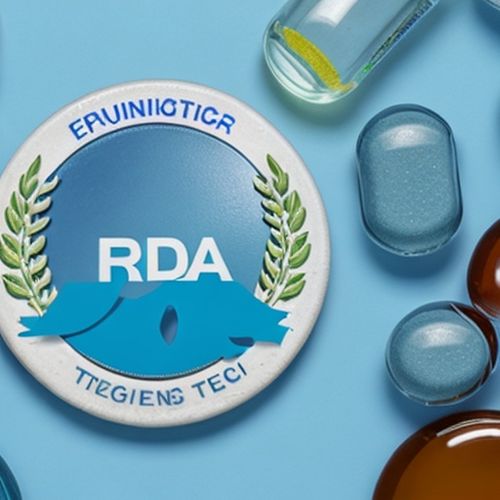In the ongoing battle against antibiotic-resistant infections, a glimmer of hope has emerged with the development of gepotidacin, a novel oral antibiotic that could revolutionize the treatment of gonorrhea. A recent study published in The Lancet highlights the potential of this medication to become the first new antibiotic for gonorrhea since the 1990s. This breakthrough comes at a critical time, as the global rise of antimicrobial resistance has rendered many traditional treatments ineffective, posing a significant threat to public health.
The Promise of Gepotidacin
Gepotidacin, developed by pharmaceutical giant GSK, has shown remarkable promise in treating both urinary tract infections (UTIs) and gonorrhea. Approved by the US Food and Drug Administration (FDA) in March for treating uncomplicated UTIs in women and girls aged 12 and older, gepotidacin works by inhibiting bacterial replication, effectively stopping the spread of infection. This mechanism of action is particularly crucial in the face of increasing antibiotic resistance, which has made traditional treatments less effective.
The study published in The Lancet underscores gepotidacin’s potential as an alternative treatment for gonococcal infections. Researchers found that gepotidacin was as effective as the current standard treatment, which involves an intramuscular injection of ceftriaxone paired with oral azithromycin. This is a significant development, as the current treatment regimen requires a visit to a healthcare facility, which can be inconvenient for many patients. Gepotidacin, being an oral treatment, offers a more accessible and convenient option, potentially increasing patient compliance and reducing the burden on healthcare systems.
The Growing Threat of Antimicrobial Resistance
The rise of antimicrobial resistance has been a growing concern worldwide. Gonorrhea, caused by the bacteria Neisseria gonorrhoeae, has become increasingly resistant to many first-line antibiotics, rendering them ineffective. This resistance has led to a significant increase in the prevalence of gonorrhea and other sexually transmitted infections (STIs), posing serious health risks, especially among vulnerable populations.
In the United States, the situation is particularly alarming. According to data from the US Centers for Disease Control and Prevention (CDC), reported cases of chlamydia, gonorrhea, and syphilis increased by 90% in 2023 compared to 2004. More than 2.4 million cases of STIs were reported in 2023 alone, highlighting the urgent need for new and effective treatments.
The Study and Its Findings
The Phase 3 clinical trial, conducted between October 2019 and October 2023, involved over 600 participants aged 12 and older diagnosed with urogenital gonorrhea across six countries: Australia, Germany, Mexico, Spain, the United Kingdom, and the United States. The study was funded by GSK, with additional support from the US Department of Health and Human Services and other federal agencies.
Participants were divided into two groups: one received gepotidacin in two oral doses administered about 10 to 12 hours apart, while the other received the standard treatment of ceftriaxone injection paired with oral azithromycin. The results were striking: 92.6% of participants treated with gepotidacin were cured, compared to 91.2% treated with the standard regimen. Importantly, gepotidacin was also effective against treatment-resistant infections, a crucial factor in the fight against antimicrobial resistance.
While the study primarily focused on urogenital gonorrhea, it also evaluated participants with rectal and throat infections. The data showed that treating gonorrhea in the throat was more challenging, with an 88% success rate. This highlights the need for further investigation into the efficacy of gepotidacin in treating throat infections, which play a significant role in the silent transmission and development of resistance.
Safety and Side Effects
The study found no life-threatening or fatal side effects associated with gepotidacin. However, participants in the gepotidacin group experienced higher rates of gastrointestinal side effects, such as diarrhea and nausea, though most were mild or moderate. This is a common challenge with oral antibiotics, but the overall safety profile of gepotidacin remains acceptable, according to the researchers.
The Broader Implications
The potential approval of gepotidacin for treating gonorrhea could have far-reaching implications for public health. Dr. Jeffrey Klausner, a clinical professor of public health at the University of Southern California’s Keck School of Medicine, praised the study as “very well-done” and emphasized the importance of having more treatment options to slow down the development of drug resistance.
“Having reliable oral options at all anatomical sites is critical,” said Dr. Jason Zucker, an infectious disease expert at Columbia University. The convenience of an oral treatment could significantly improve patient compliance and reduce the number of healthcare visits, especially for those with limited time off work.
However, concerns remain about the potential for future resistance to gepotidacin. Experts warn that the inherent ability of gonococci to develop resistance means that continued development of new treatments is essential. “Due to the inherent ability of gonococci to develop resistance, difficulties in increasing the gepotidacin dose due to adverse events, and the lack of other treatment options, preclinical and clinical development of additional gonorrhea treatments remains important,” wrote Magnus Unemo and Teodora Wi in a comment paper accompanying the study in The Lancet.
A Step Forward in the Fight Against Gonorrhea
The development of gepotidacin marks a significant step forward in the fight against drug-resistant gonorrhea. As the first new antibiotic for gonorrhea in decades, it offers a promising alternative to the current standard treatment, with the added benefit of being an oral medication. This convenience could improve patient compliance and reduce the burden on healthcare systems, making it a valuable addition to the arsenal against this growing public health threat.
However, the journey does not end here. Continued research and development are essential to address the ongoing challenge of antimicrobial resistance. As experts warn, the fight against gonorrhea will require not only new treatments but also strategies to ensure their effective and responsible use. The success of gepotidacin underscores the importance of innovation in the face of evolving bacterial threats, offering hope for a future where gonorrhea remains a treatable and manageable infection.
In the end, the story of gepotidacin is not just about a single drug but about the broader commitment to scientific advancement and public health. As we celebrate this milestone, we must also remain vigilant, recognizing that the battle against antimicrobial resistance is far from over. The future of effective treatments for gonorrhea and other infections depends on our continued dedication to research, innovation, and collaboration.

By Samuel Cooper/Apr 16, 2025

By James Moore/Apr 16, 2025

By Sophia Lewis/Apr 16, 2025

By Michael Brown/Apr 16, 2025

By Christopher Harris/Apr 16, 2025

By Natalie Campbell/Apr 16, 2025

By George Bailey/Apr 16, 2025

By Thomas Roberts/Apr 16, 2025

By Natalie Campbell/Apr 16, 2025

By John Smith/Apr 16, 2025

By Emma Thompson/Apr 15, 2025

By Lily Simpson/Apr 15, 2025

By Noah Bell/Apr 15, 2025

By Victoria Gonzalez/Apr 15, 2025

By Benjamin Evans/Apr 15, 2025

By Joshua Howard/Apr 15, 2025

By Daniel Scott/Apr 15, 2025

By Amanda Phillips/Apr 15, 2025

By James Moore/Apr 15, 2025

By Grace Cox/Apr 15, 2025